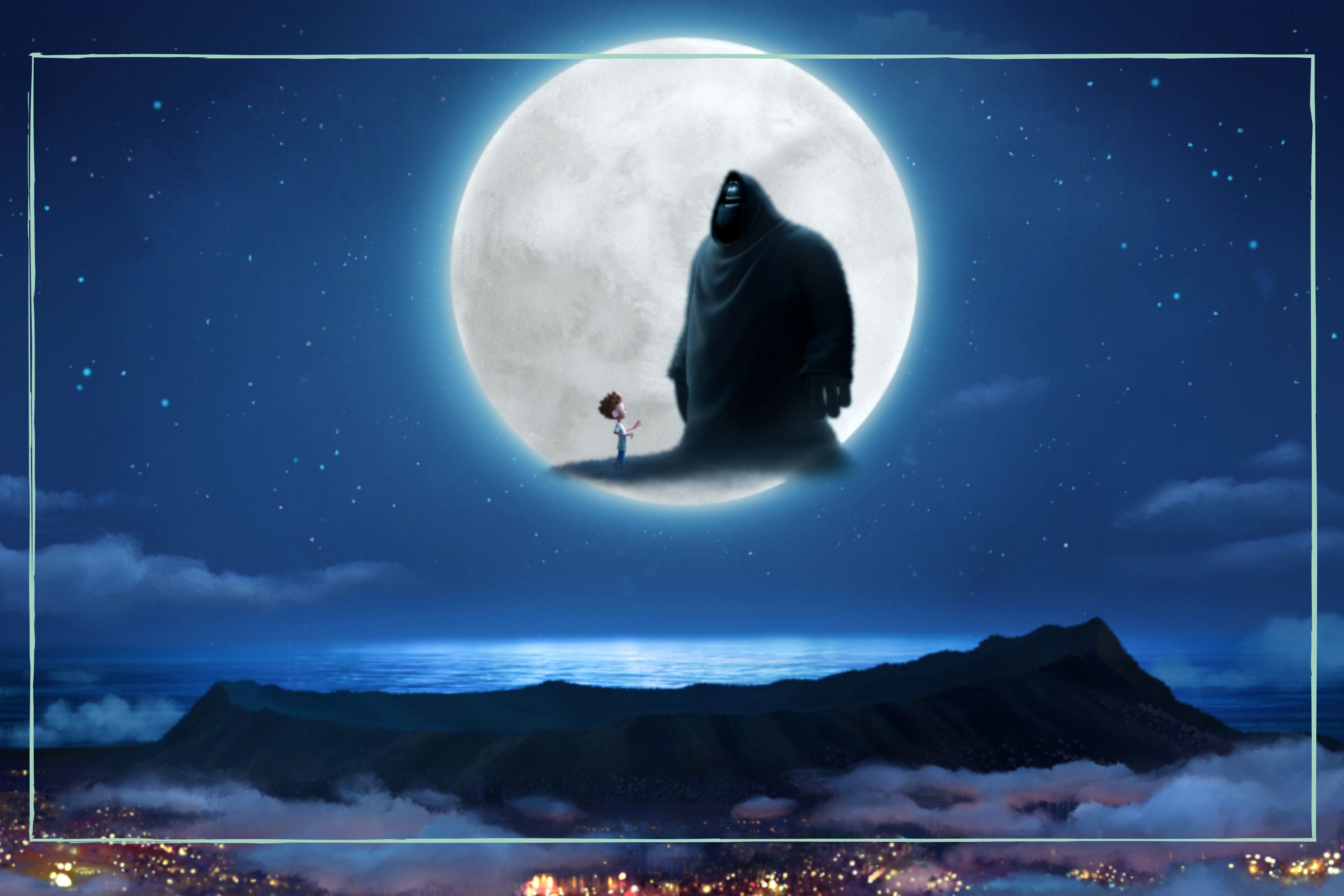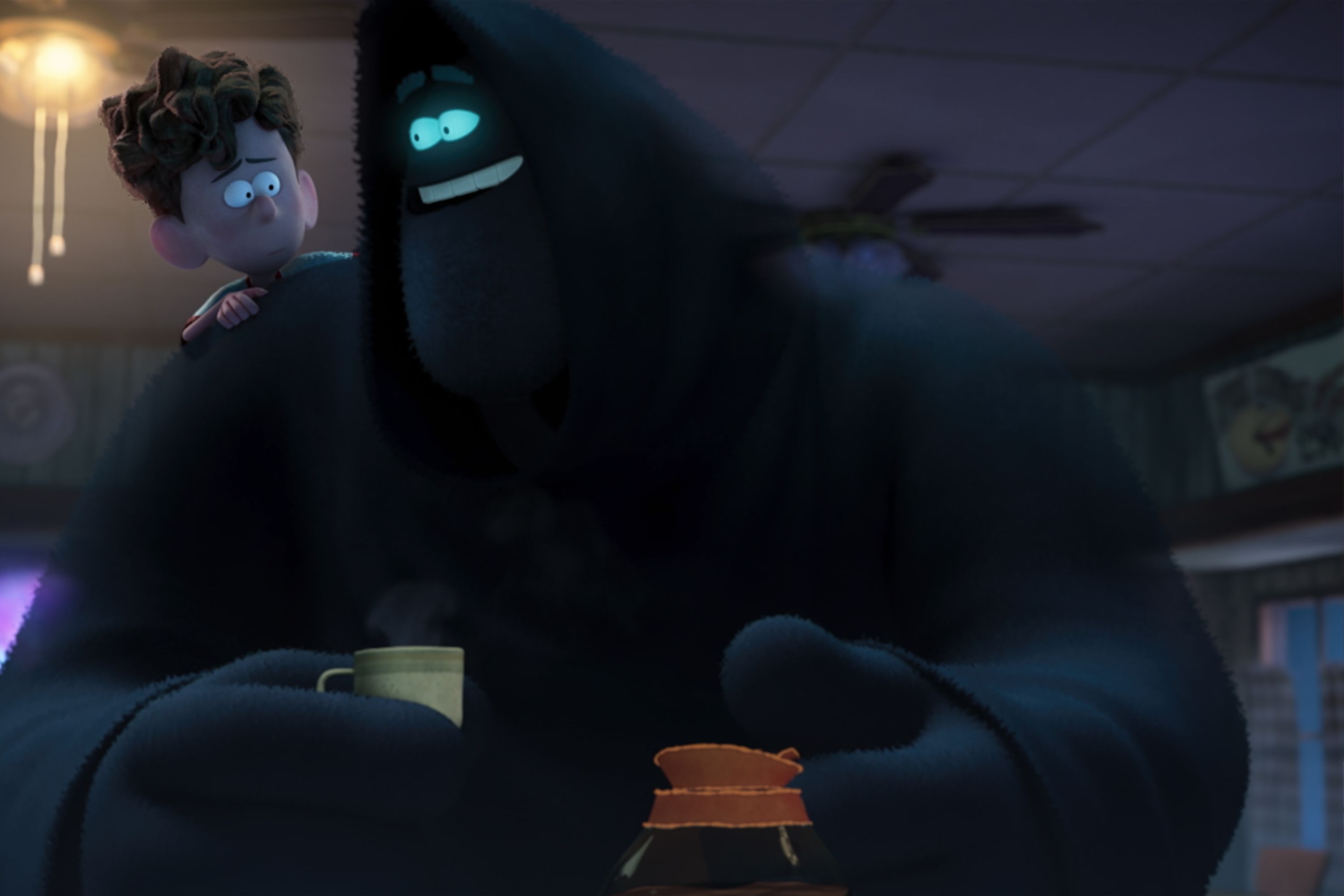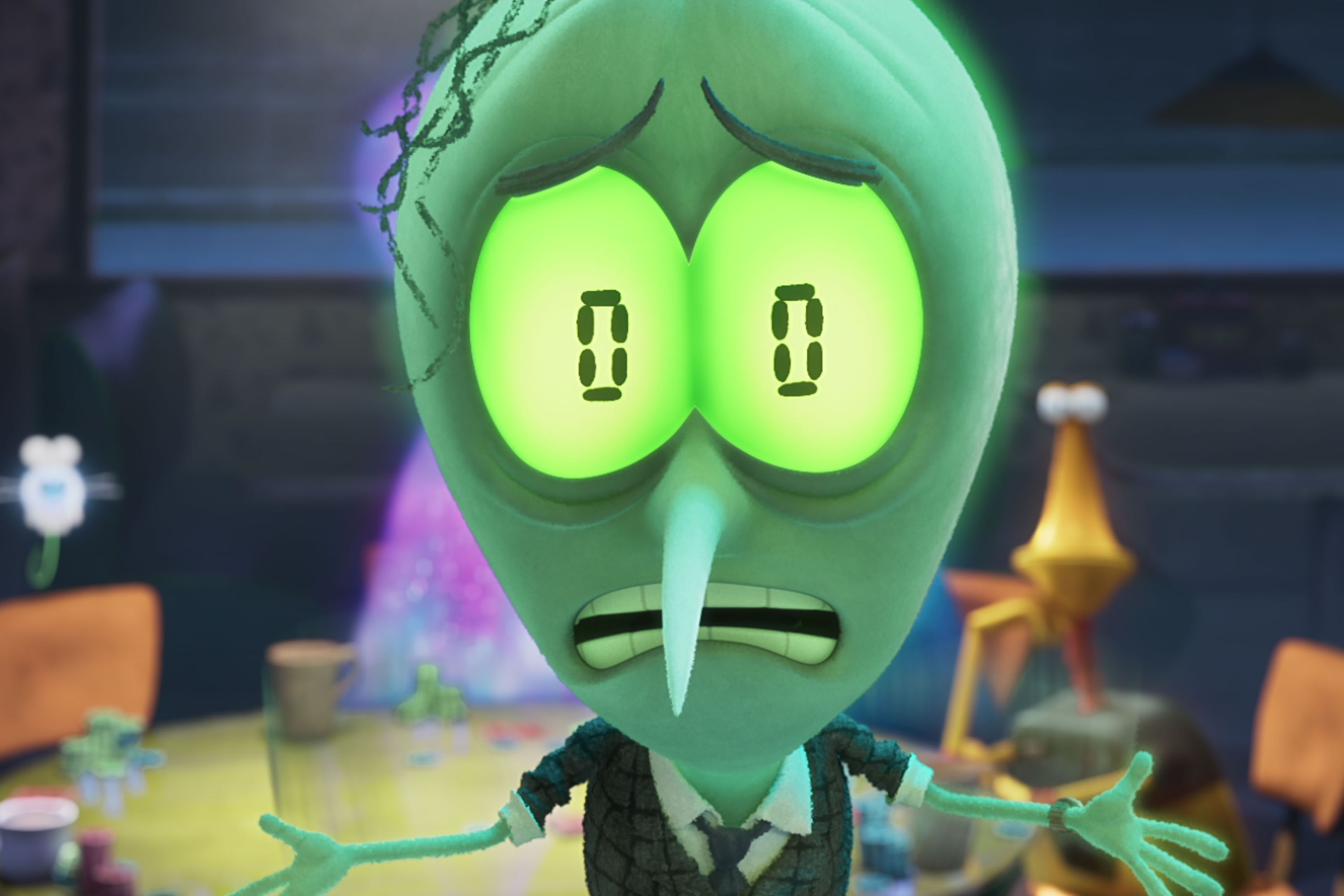
Orion and the Dark tackles the big feelings little ones experience over a common childhood worry, and we've asked experts to delve into whether kids should be challenged to overcome their fears.
DreamWorks has brought Orion and the Dark to Netflix, with the titular young boy Orion living under the weight of a host of anxieties. Directed by Sean Charmatz and with screenplay written by Charlie Kaufman, the film sees Orion trying desperately to maintain a normal exterior, while confronted every night by his biggest fear of all - the dark. When the embodiment of Dark pays a visit, he takes Orion on an emotional journey to prove night time isn't the scary place he thinks it is. As their unlikely friendship grows, Darks helps Orion learn to accept the unknown and stop letting fear control his life.
The film marks part of a positive trend towards embracing children's mental health, and the difficult emotions they experience. Inside Out 2 has a new character set to pave the way for discussions about childhood fears, while the anxieties of modern parenting have been explored in Netflix's Leo - the movie dealt with topics ranging from puberty and dealing with divorce, to the positive use of technology to alleviate fears.
BACP registered therapist Jenny Warwick is a counsellor and parenting expert. She spoke to us about children like Orion facing their fears, saying "Confronting their fears allows children to practice and learn how to regulate their emotions, a crucial part of their development. It also gives them a sense of how to manage stressful feelings in a healthy way. Going into new or unfamiliar situations can be scary for any of us, but by stepping out of our comfort zone, we can learn and grow from our experiences."
We asked Jenny how best to encourage children to confront their fears, as well as when it might not be a good idea to persuade kids to push through their anxieties. And if you want to find out more about Orion and the Dark, we've got that covered too.
What is Orion and the Dark based on?
Orion and the Dark is based on the 2014 adventure fiction book of the same name, by Emma Yarlett. Both written and illustrated by Leicester-born Yarlett, the picture book is aimed at those aged 4-5. The film is for a slightly older audience of those aged seven and older, due to the more complex way anxiety is presented.
The picture book sees Orion avoid bedtime at all costs, and taken over by the consuming fear that comes when the strange noises begin and the space around him becomes darker and darker. Orion and Dark investigate the strange noises together, with Orion eventually seeing Dark for the interesting and magical place it can be.
In the film, Orion's fears are more relatable for adolescents. He admits to being scared of girls, being responsible for his team losing, and getting questions wrong in class. Emma Yarlett spoke to Picture Book Blogger about her inspiration for the book, and was asked whether she too was afraid of the dark.
Emma said "I’ve never really been afraid of darkness, I’ve always been more afraid of the way nice things can become terrifying when it get’s dark. When I was a kid for some unknown reason, my parents had two life sized teddy bears that sat on a sofa in the spare room of our house (weird!). In the daytime I didn’t mind them so much, but when it was night time and I had to walk past them to go to the bathroom… it was terrifying!"
Citing Roald Dahl, CS Lewis and Julia Donaldson as some of her greatest inspirations, the author added "The real inspiration for my stories comes from just taking some time out to sit and observe the world and think. I like to take something we all know or have experienced in one form or another (such as a fear of the dark, or the moon), and come up with a key concept to do with these things… like if you’re afraid of the dark, what would happen if you met him?
And when I find an idea I really like I begin to build a story around that key thought. I’m a very visual thinker, so as soon as the idea for the story is there I’m thinking in pictures and narrating it with my own thoughts. Sometimes I leave the idea stewing in my head for months, and then one day I sit down and it suddenly pours out of me all at once. That’s what happened with Orion and the Dark!"
Should we be encouraging kids to face their fears?
Counsellor and parenting expert Jenny Warwick believes there are plenty of occasions where parents should engage with children to help them deal with emotions and situations they find frightening.
Jenny told us "Facing their fears can help children build resilience; the ability to bounce back. It helps them to learn coping skills and ways to manage life's challenges. If kids are protected from ever feeling a bit nervous or scared, how will they be able to thrive and grow?
"Children can significantly boost their confidence and self-esteem by being brave, facing their fears and beating them. 'I was scared of the dark, but I was brave, and saw there was nothing to worry about and now I'm not scared anymore.' What a great way to provide a positive learning experience."

In the modern world, there are many things that can frighten children. Alongside classic childhood fears such as the dark and imagining faces lurking in bedroom walls, children can be exposed to frightening imagery through their devices and social media, adding new anxieties and potentially heightening existing ones.
For parents seeking ways to help their children face their fears in the modern world, Jenny has the following advice:
- Open communication: Talk to your child to understand their fears from their perspective. Don't dismiss but validate their feelings and reassure them that they will be ok.
- Gradual exposure: You could gradually expose them to the situation they are fearful of in a controlled way. They can then slowly build their confidence.
- Role modelling: Show them healthy ways of facing fears by sharing your experiences and coping strategies. For example, talk to them about how grown-ups are sometimes afraid when it's dark, just like they might be. When you turn on the light, you realise there's nothing to be frightened of.
- Positive reinforcement: Notice and praise their efforts to face their fears. Let them know that you're proud of them for doing something they found difficult.
- Make it fun: Like Dark does in the film, help make the process fun and creative. Encourage them to paint their fear, for example, or create a game together where they are the fear-busting superhero.

When is it not a good idea to persuade kids to face their fears?
Although there are many positives to helping children through their fears, this is not a one-size-fits-all approach. Jenny reminds parents to look at their child's individuality and the circumstances of their situation before encouraging them to face something they find hard.
Jenny told us "Considering where they are developmentally is crucial, as certain situations can seem overwhelming or frightening to younger children based on their understanding of the world. Each child is unique. Their temperament and past experiences all influence their perception of the world. Two children raised in the same household, with the same people around them, will have their own distinctive personalities and characters."
The therapist and parenting expert added "It's essential to recognise that there are situations where pushing a child to face their fears might not be the best approach."
These include:
- Traumatic experiences: If a child has experienced a traumatic event related to the fear, pushing them too soon may re-traumatise rather than help.
- Developmental readiness: Every child develops at their own pace. Some may not be emotionally ready to confront specific fears and pushing them before they're ready could be counterproductive.
- Respect for boundaries: It's crucial to respect a child's boundaries. If they express a strong unwillingness, forcing them might make them less likely to trust you and will create resistance.
- Genuine disinterest: If the fear isn't significantly impacting the child's well-being or daily life, and they genuinely have no interest in facing it, it might be ok to let it be.
Jenny concluded "If fears persist and significantly impact their wellbeing, consider seeking the assistance of a mental health professional or counsellor with experience with this issue."
Where to watch Orion and the Dark
Orion and the Dark will be streaming on Netflix from February 2, 2024.
To watch the film, you will need a Netflix subscription - the streamer currently has four subscription options, requiring monthly payments. At £4.99 per month, the cheapest membership option contains ads, and subscribers can only watch on one device at a time with no option to download content.
The £7.99 per month membership allows subscribers to watch on one device at a time and view in standard definition. At £10.99 per month the standard subscription enables viewers to watch on two devices at a time and view in HD.
The most expensive plan is £17.99 per month. This premium subscription offers Ultra HD where available, with the ability to watch on four devices at once.
For more kids TV content, we recently looked at why the latest Famous Five adaptation divided viewers. Enid Blyton was one of many children's book authors whose novels have been made into movies and shows, who later fell foul of cancel culture - we take a look at who joined her and why. In some of the most wholesome TV for kids, we took a deep dive into why Bluey is different to other shows, and why everyone loves the Blue Heeler pup.







